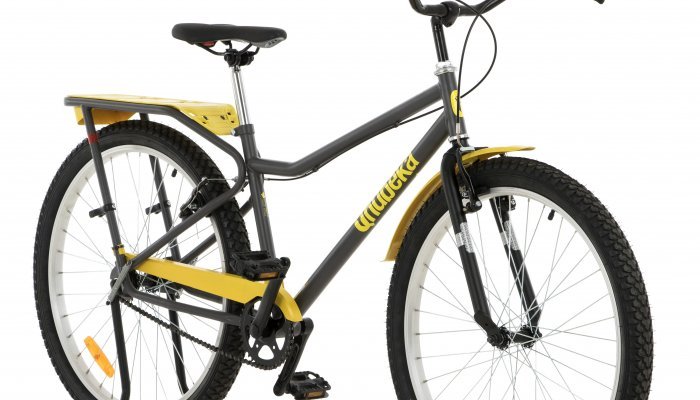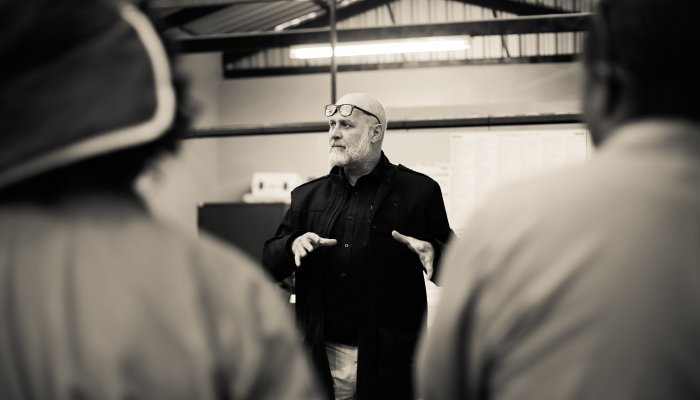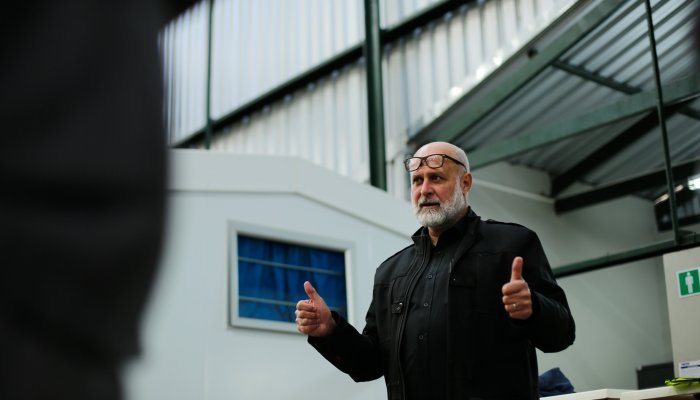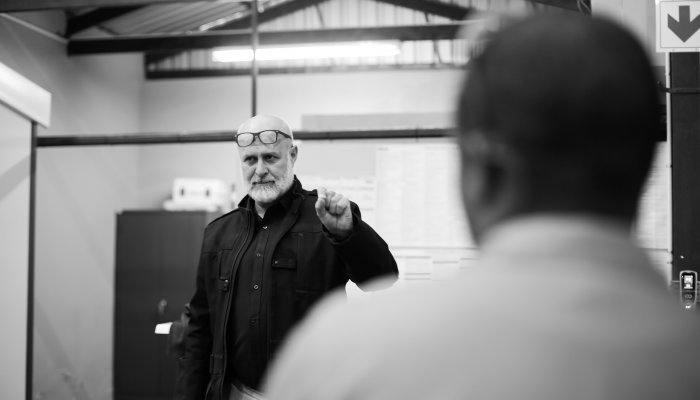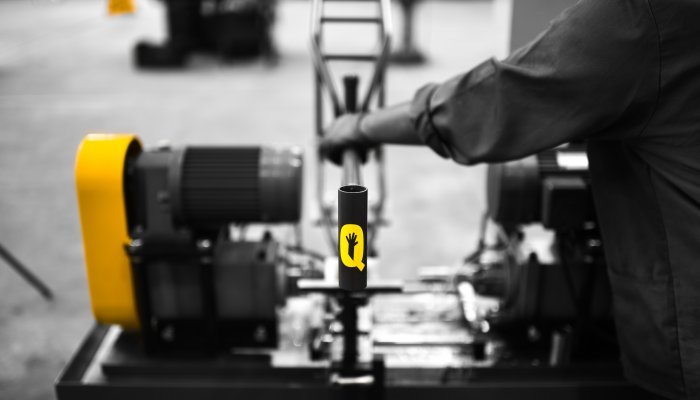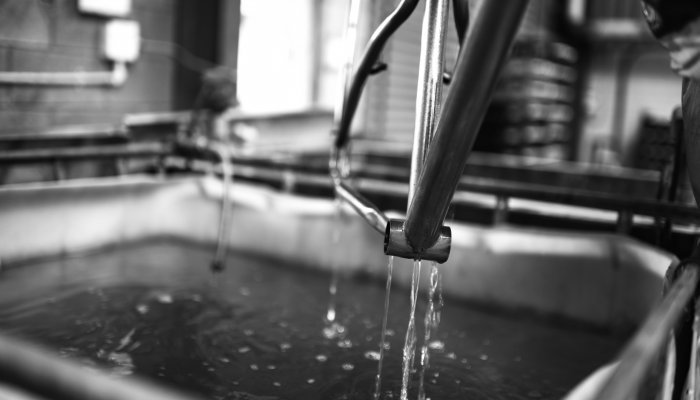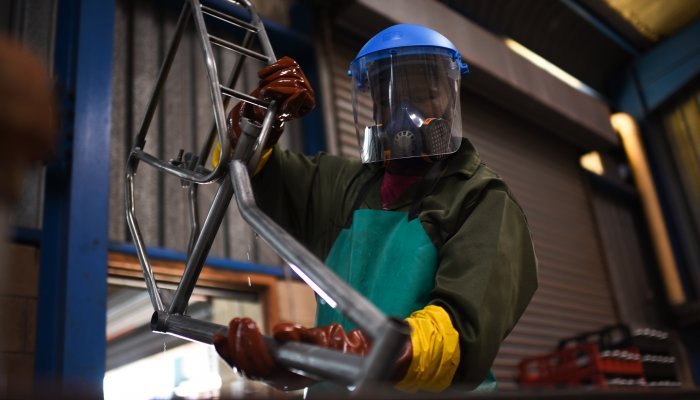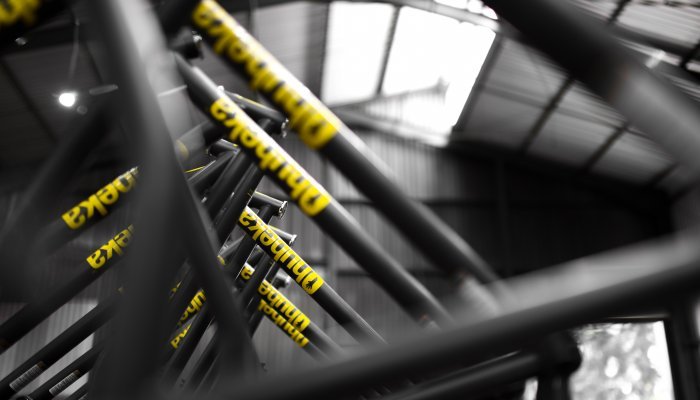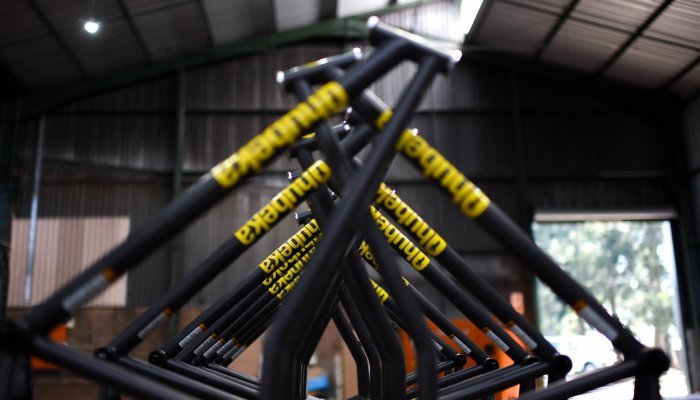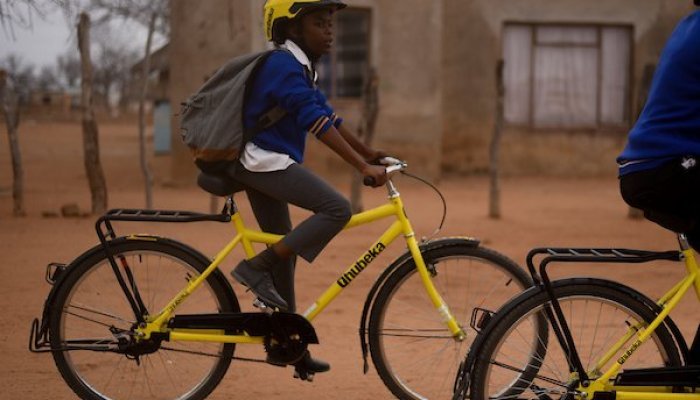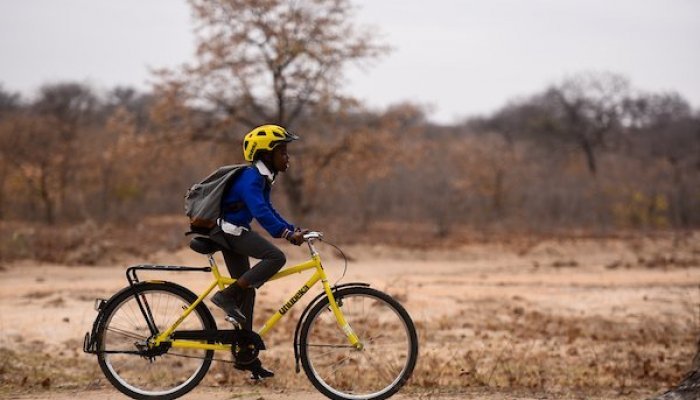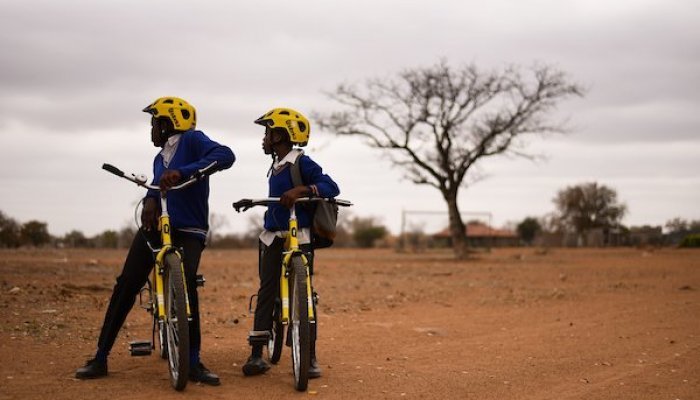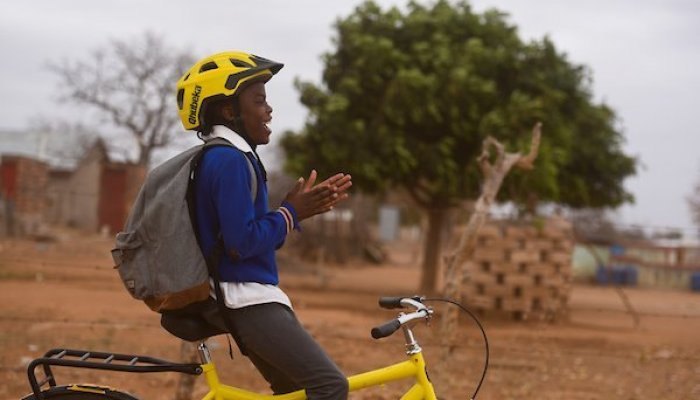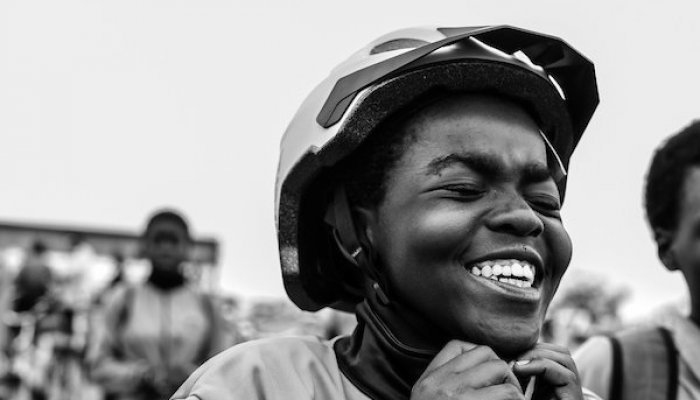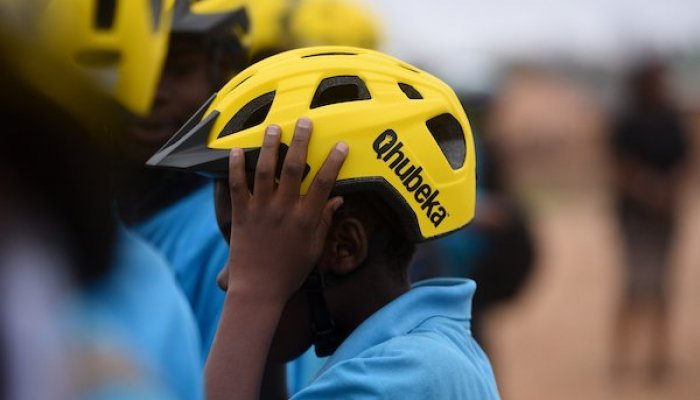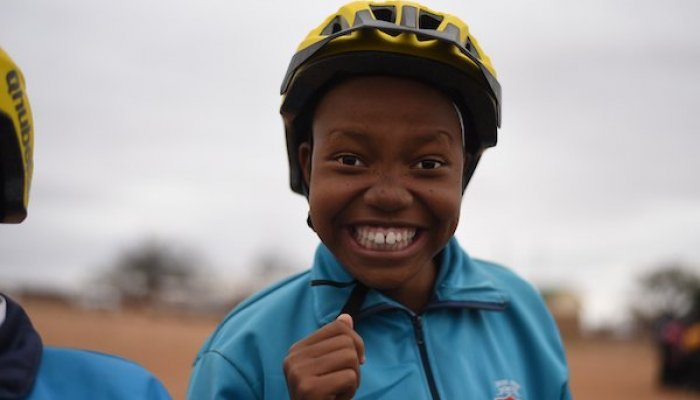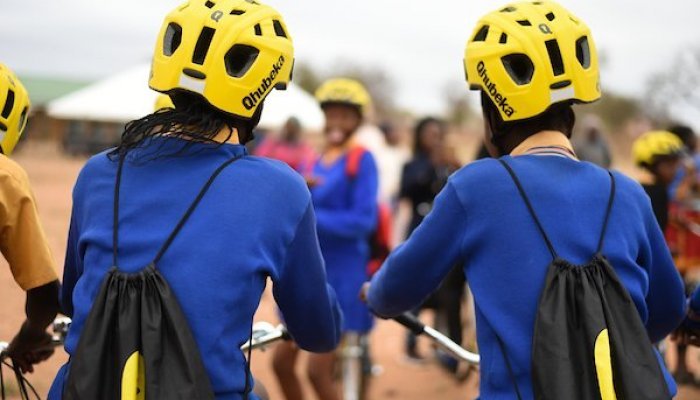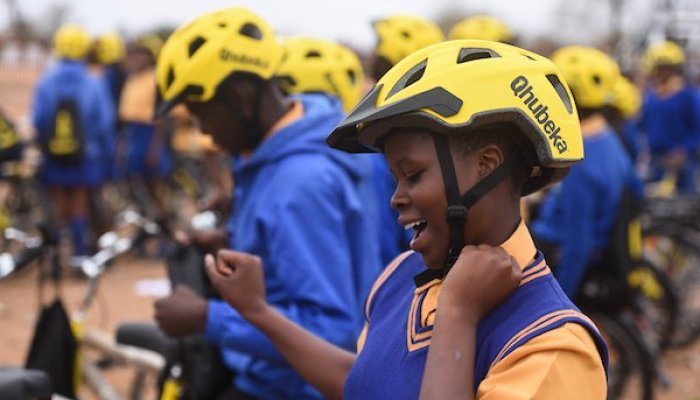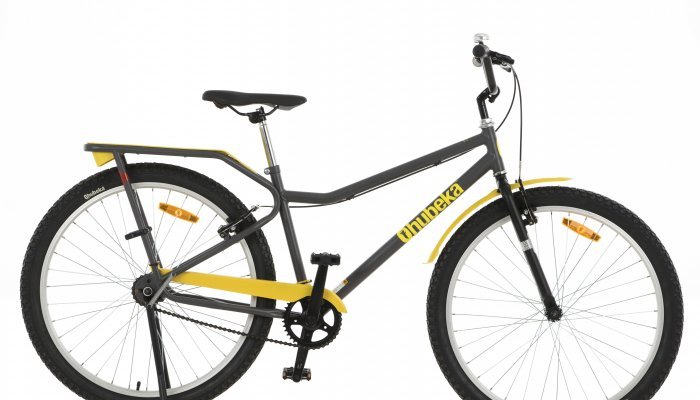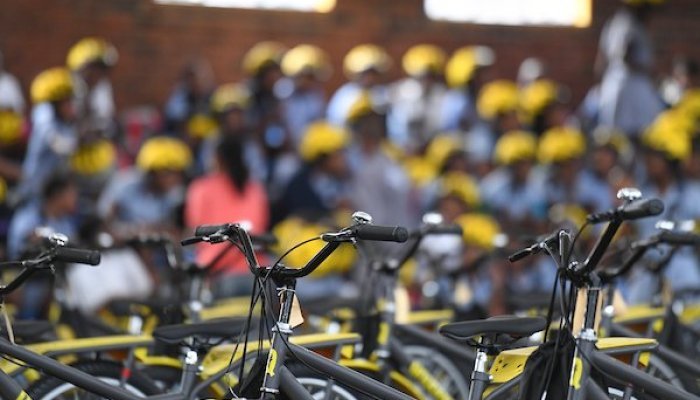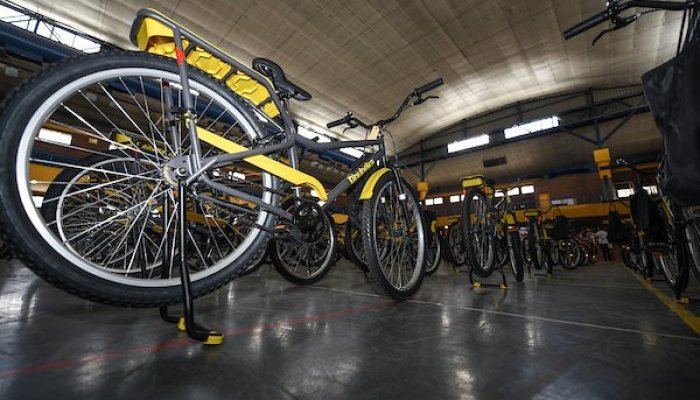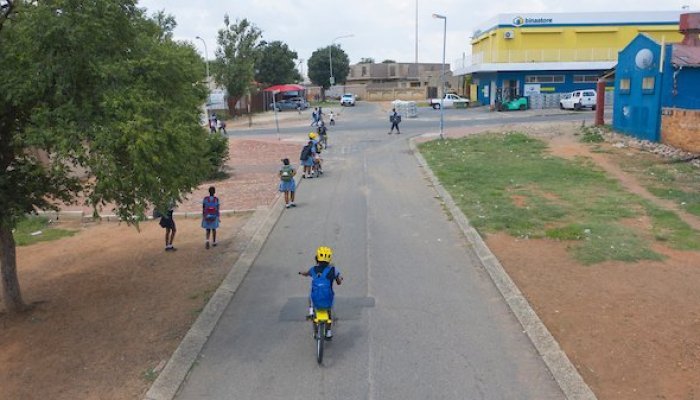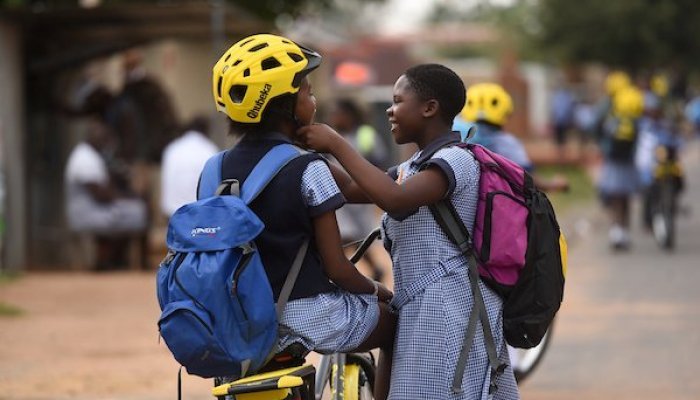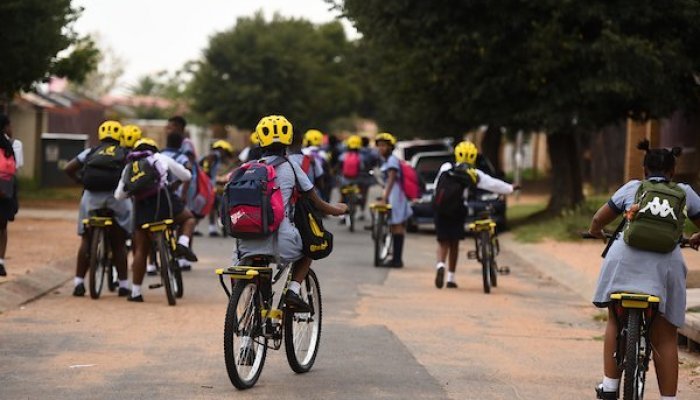Qhubeka’s founder, Anthony Fitzhenry, explains that bicycles can be a meaningful part of the solution to some of South Africa’s most pressing socioeconomic challenges, such as persistent and widespread poverty. “With a bicycle, a person can travel faster and further, and carry more. Bicycles are the most cost-effective and efficient means of bringing last-mile delivery of resources to people. The impact of bicycles is immediate,” he says. “Bicycles are a tool that people can use to improve their lives. But the problem of poverty is so massive that to make a real impact, we need to distribute millions of bicycles to communities that lack access to transport. Consider that 12 million of South Africa’s 16 million schoolchildren walk to school every day, and you start to understand the scale of the problem.”
...it upholds their dignity because it’s not a handout.
Learners who have to walk long distances to school are more likely to arrive late, be tired and have high rates of absenteeism. A bicycle can cut commute time by up to 75%. It can also make it easier to carry textbooks, to get to the library or to access extramural activities.
Adults use bicycles earned through Qhubeka programmes to access jobs, healthcare facilities, educational institutions or to build bicycle-based businesses – transporting goods to sell, renting bikes out and running bicycle tours. Qhubeka also supplies bicycles to community policing forums to assist with safety patrolling.
Tsatsi Phaweni, executive director at Qhubeka, explains that the charity runs learn-to-earn programmes for children and work-to-earn programmes for adults.
“When people earn bicycles, it upholds their dignity because it’s not a handout,” she says. “We see it as a helping hand up, which is why we have a hand symbol as part of our branding. It’s important to us that we work in partnership. We rely on our implementation partners, our funders (which include individuals, and public and private sector organisations) and the communities in which we operate. Together, we can change more people’s lives using bicycles.”
Seeing the whole picture
Qhubeka was founded in 2005 and has evolved as it’s grown. A major milestone was the decision to train bicycle mechanics in the communities in which Qhubeka operates. “By ensuring that the bicycles we distribute are able to be properly repaired and maintained, we ensure the sustainability of our programmes,” Phaweni says. “Through our training partners, the mechanics learn not only bicycle repair skills, but basic business skills. Our aim is to help them to run successful micro-enterprises. They also have access to our spare parts supply chain.”
...the mechanics learn not only bicycle repair skills, but basic business skills.
A more recent milestone is the establishment of Real Bicycle Co. (RBC) in 2017 – a wholly owned bicycle design and manufacturing subsidiary. “We’ve currently distributed just under 100 000 bicycles over our history,” says Fitzhenry. “It’s not enough. We need to be programming huge numbers to make an impact, and we need a more rugged bicycle than what’s been available. That’s the idea behind RBC. It allows us to control our entire bicycle supply chain, while creating a quality product that meets a market need.”
South Africa once had a thriving bicycle manufacturing industry, and RBC’s aim is to re-shore bicycle production to the country. “South Africa used to produce 500 000 bicycles a year during the heydays of the 1980s. Over almost 15 years at Qhubeka, we’ve tried over 10 different bicycle designs before founding RBC. We realised the problem is traditional bicycle manufacturing,” Fitzhenry says. “We cannot get a robust enough bicycle out of China or India – the places that build enormous numbers of bicycles. We need to build our own bicycle that’s designed to last for 50 000km, not 4 500km, which is the best bicycle we’ve managed to source previously. We need to disintermediate and to use new manufacturing techniques to drive cost efficiencies and manufacture on a massive scale.”
The initial funding for the establishment of RBC came through an Enterprise and Supplier Development (ESD) grant from Mercedes-Benz South Africa, while Deloitte Consulting prepared the business plan that helped to secure this seed funding.
“We came up with what we think is a unique bicycle design and we’re delighted with the output,” says Fitzhenry. “We’ve managed to become part of the National Tooling Initiative Programme and Mercedes-Benz has come on board, not only with resources but with engineering and management skills.”
RBC first began developing the bicycle prototype in 2016, later importing the best equipment available for building steel bicycles. “We started small-scale production in 2018 and by the end of the year, we’d replicated the manufacturing pattern approximately 2 000 times. We’ve built more than 3 000 bicycles and production is ramping up nicely on a month-to-month basis,” says Fitzhenry.
...the vision for RBC is bigger than supplying bicycles for Qhubeka’s programmes.
In for the long ride
RBC has riders rigorously testing its bicycles. Two have ridden 20 000km to date – more than four times the average the previous best Qhubeka bicycle lasted. A further 10 riders have covered 10 000km and there are 60 learn-to-earn programme beneficiaries who have ridden their new RBC bicycles an average of 5 000km.
“We are happy with the quality and the way it looks. There are some minor adjustments we’d like to make to improve sustainability and performance,” Fitzhenry says. “In May we will begin with version six. We’re currently running three manufacturing plants and two assembly facilities, but we are planning to consolidate the plants and move to our mega-factory by the end of the year, which will help us to build more volume into 2020. Our aim is to build at least 50 000 bicycles in 2020 and 200 000 in 2021.”
RBC has been issued its SADC Certificate of Origin, which certifies its bicycles meet the requirements of being manufactured in South Africa. Fitzhenry says this gives RBC the advantage of trading within the SADC region without incurring import duties, which will help to keep costs lower for customers wanting to purchase bicycles. The plan is that RBC bicycles will be available for retail, which will provide an additional funding stream for Qhubeka.
Fitzhenry says the vision for RBC is bigger than supplying bicycles for Qhubeka’s programmes. “It’s about job creation, enterprise and skills development and making a positive contribution to the economy. It’s about addressing massive and persistent poverty. It’s about bringing Fourth Industrial Revolution manufacturing to South Africa and showing we have the capacity to produce world-class bicycles at competitive prices and that our bicycles are built to outlast.”
“A bicycle changed my life”
S’thembile, who was 14 years old when she received her bicycle in 2017, lives in Bergville in rural KwaZulu-Natal. “I used to travel for 1 hour and 30 minutes or more to school,” she told Qhubeka. “But now with the Qhubeka bicycle I only ride for 30 minutes or less. I’ve noticed that my life has really changed because I am no longer a latecomer and I now have time to do things that every child does, but I never experienced on my own… I get time for my home chores and studying.”
Appearance Sibuyi is one of the Qhubeka bicycle mechanics. He lives and works in Giyani, Limpopo, where he services and repairs the bicycles of schoolchildren in Qhubeka’s learn-to-earn programmes in the region. He says the best part of his mechanic training was the “Business in a box”, which provides basic business training and tools. “I acquired a lot of knowledge about sales. And that helps me also to sustain my business and elevate it to the next level. I know how to market my business in order to have a lot of customers. I work collaboratively with learners. I do the bicycle maintenance, which helps me to have a strong relationship with them. Furthermore, the bicycle mechanic programme helped me to understand and find out the God-given gift in me – the gift of working for people. I sincerely work for the community to see no child going to school with his or her bicycle unattended to.”
Lessons learned
Fitzhenry founded Axiz (Pty) Ltd, which grew to become the largest IT distribution company in Africa. He has 30 years of business and manufacturing experience, but says one of his lessons from RBC is that manufacturing in the steel industry is different to IT – understanding the culture of the sector in which one is involved is critical. These are some of his other lessons learned:
· Practice humility: “My advice is to approach a new venture like this with humility,” he says. “Recognise the experience of those you’re working with. The key is patience and being willing to listen to people. It’s also about facilitation – thinking about how to get the best out of all the people you’re working with and how to keep them focused on the common goal.”
· Source the right people: With South Africa’s history in bicycle manufacturing, it was easy enough to find bicycle-manufacturing skills. However, integrating these with cutting-edge manufacturing techniques has been a challenge, and Fitzhenry says the learning curve has been longer than expected.
· Know your fallback position: “If you buy into one process or machine, you need to still keep in mind what your fallback will be if it doesn’t work. You also need to be on top of your game with logistics, especially when you’re dealing with the quantities of steel we need to move,” Fitzhenry says. It’s easy to make a mistake with one part of the process and then everything stands still. Ultimately, it’s important to keep one’s eye on end goal and to keep taking steps towards it, while bearing the total process in mind.
· Understand where you are on the business journey: “I foresee that 2019 is going to be a real Damascus road year for us. We’re moving from small-scale manufacturer to medium-scale. The skills required are very different,” Fitzhenry says. “We need to be able to see the bottlenecks ahead and to try to pre-empt them. We need to think about what kind of people we need where, and how to repurpose them as we grow. It’s a move from pure entrepreneurial skills to specialisation.”


